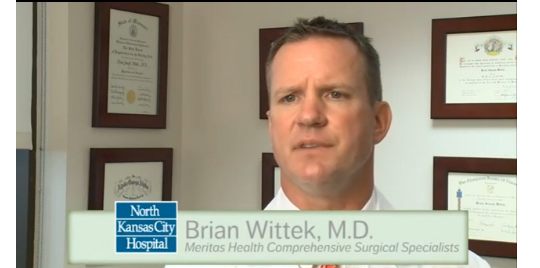June is Hernia Awareness Month: 4 Ways to Reduce Your Hernia Risk
June 16, 2014By: Jodi Rawson
Categories: Prevention

An estimated 700,000 people undergo hernia repair surgery in the U.S. each year. The condition is often caused by common activities such as weak or injured muscles, previous surgery-related incisions, lifting and straining, and pregnancy.
There are several types of hernias, and depending on the cause, they can develop quickly or over an extended period of time. Hernias can’t be prevented. In fact, some are present at birth. However, you can reduce your hernia risk with these four tips
- Maintain a healthy weight. Obesity is a primary risk factor for developing a hernia.
- Use proper lifting techniques to avoid straining a muscle.
- Reduce straining on your belly, which often occurs with constipation. Drink plenty of water and eat foods high in fiber.
- Stop smoking.
Symptoms and Treatment
It’s likely you won’t realize you have a hernia until it shows us during a routine physical exam. Some people may experience symptoms such as an abdominal bulge accompanied by pain or a feeling of pressure in the affected area.
Hernias should not be left untreated. While it may not get worse, it will not heal itself. In some cases, a hernia can be dangerous it can restrict blood flow and damage tissue or become life-threatening. If you suspect you have a hernia, call your doctor to schedule an exam.
Some hernias require no treatment other than periodic monitoring. Others can be treated by a change in diet. However, some hernias do require surgery.
You should see your primary care physician to evaluate you if you believe you have a hernia. If you do not have a physician, you can use our Find-A-Doctor search on our website.
Looking for more information on hernias? Watch our video, in which Brian Wittek, MD, with Meritas Health Comprehensive Surgical Specialists, explains what a hernia is and how it’s treated.



